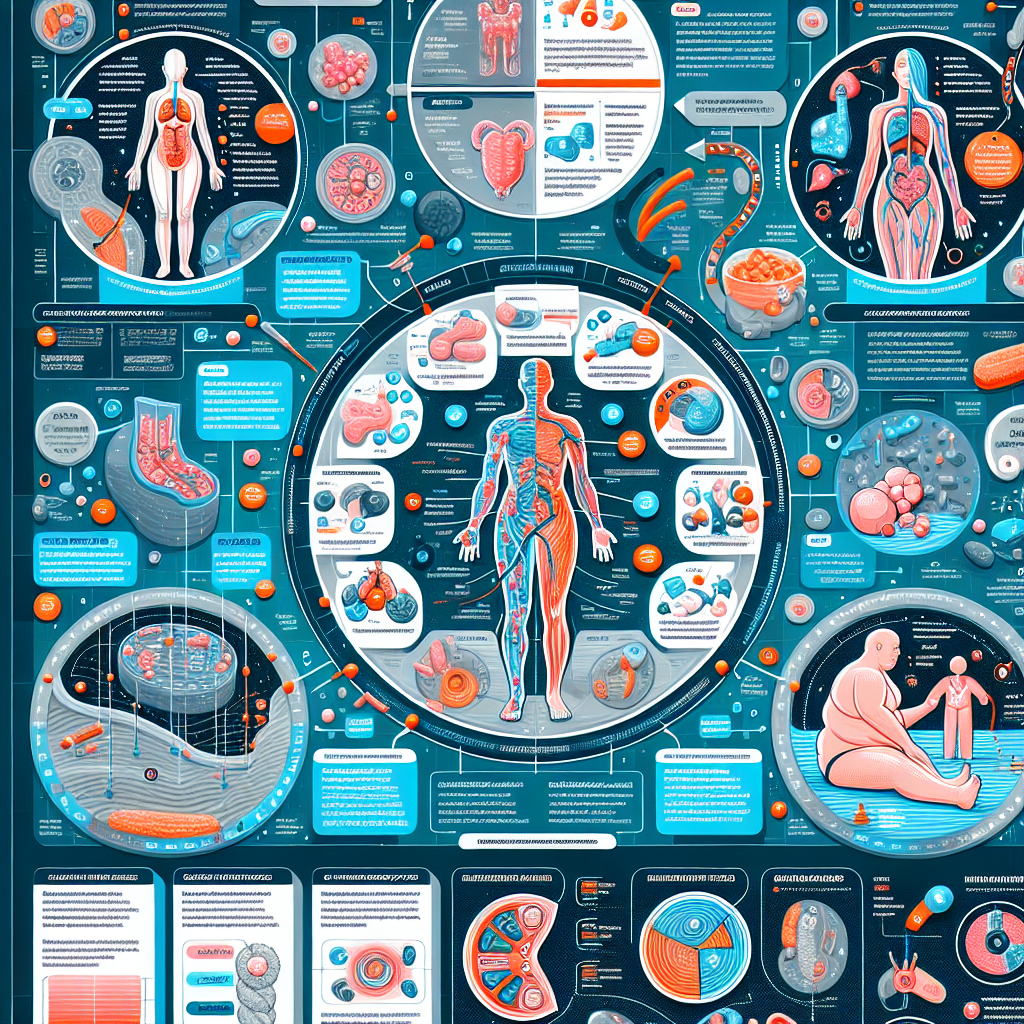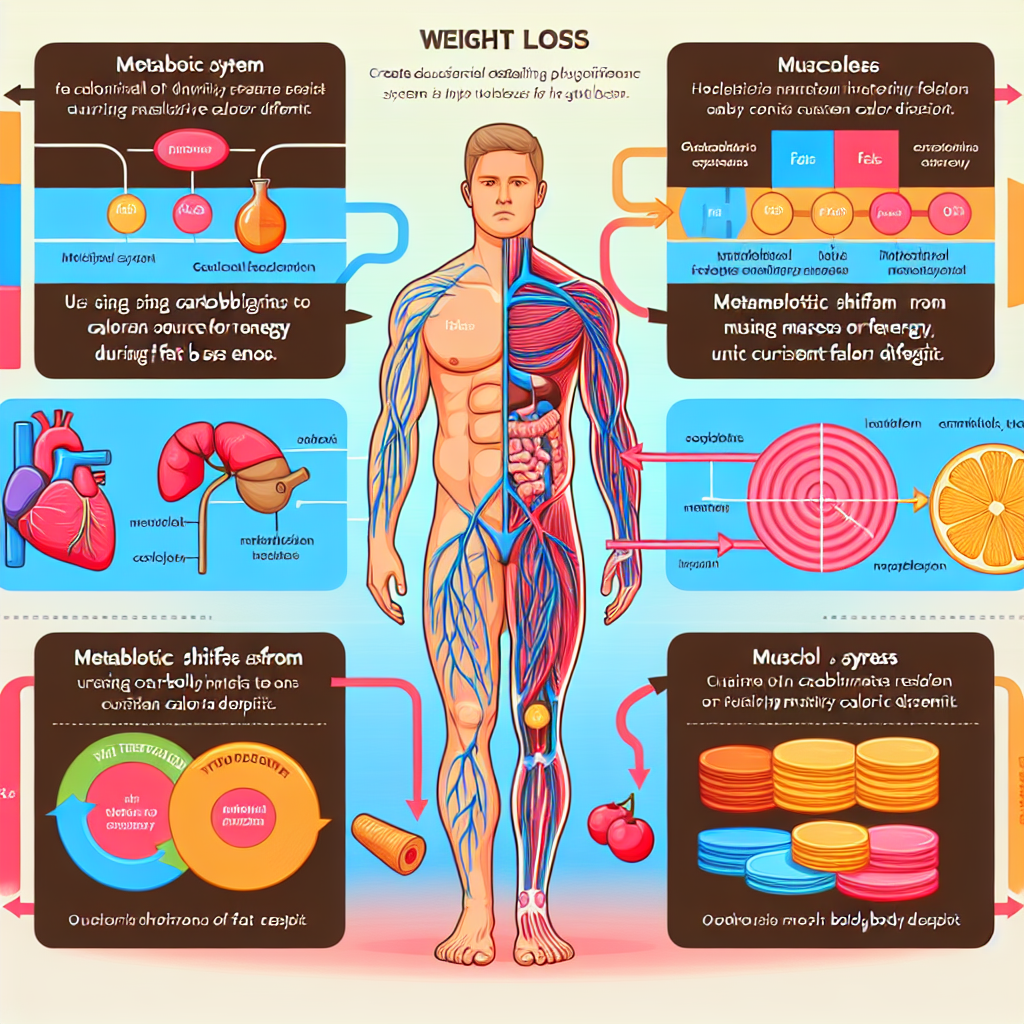What Really Happens in Your Body During Weight Loss

Discover what really happens in your body during weight loss! Uncover the science behind shedding pounds and how it impacts your overall health. Learn more by clicking here.
Understanding the Biological Process of Weight Loss: What Really Happens Inside Your Body
Weight loss is a topic that has been extensively discussed, with a plethora of diets, exercise regimens, and weight loss supplements available in the market. However, the biological process of weight loss is often overlooked. Understanding what really happens inside your body during weight loss can provide a more comprehensive perspective on this complex process.
Weight loss, in its simplest form, is the result of a caloric deficit. This means that the body is burning more calories than it is consuming. This deficit forces the body to tap into its stored energy reserves, primarily fat, to meet its energy needs. However, the process is far more intricate than it appears on the surface.
When you consume fewer calories than your body needs, your body enters a state of negative energy balance. In response, your body initiates a series of metabolic adaptations to conserve energy. One of the first responses is the breakdown of glycogen, a form of stored glucose found in the liver and muscles. This process releases water, which is why people often experience a significant drop in weight during the initial stages of a diet.
As glycogen stores deplete, the body turns to fat for energy. Fat cells, or adipocytes, store excess energy in the form of triglycerides. During weight loss, hormones like insulin decrease, and hormones like glucagon and adrenaline increase. This hormonal shift triggers the breakdown of triglycerides into glycerol and fatty acids, which then enter the bloodstream to be used as energy. This process, known as lipolysis, leads to a decrease in the size of fat cells, resulting in weight loss.
Simultaneously, the body also breaks down protein in muscles to provide energy, especially during prolonged periods of caloric restriction. This is why it’s crucial to consume adequate protein and engage in resistance training during weight loss to preserve muscle mass.
However, weight loss isn’t just about burning fat. It’s also about changes in the body’s physiology and metabolism. As you lose weight, your body requires fewer calories to function, leading to a decrease in metabolic rate. This is often why weight loss plateaus after a certain point, and why maintaining weight loss can be challenging.
Moreover, weight loss can also impact hormones that regulate hunger and satiety. Leptin, a hormone produced by fat cells, signals to the brain that the body has enough energy stored. As you lose fat, leptin levels decrease, which can increase feelings of hunger. Conversely, levels of ghrelin, a hormone that stimulates appetite, can increase during weight loss.
Understanding the biological process of weight loss underscores the importance of a balanced and sustainable approach. Quick fixes and extreme diets may lead to rapid weight loss, but they can also lead to muscle loss, metabolic slowdown, and hormonal changes that promote weight regain. Therefore, a gradual weight loss through a balanced diet and regular physical activity is recommended for long-term success.
In conclusion, weight loss is a complex process involving numerous biological changes. It’s not just about “burning fat,” but also about metabolic adaptations, hormonal shifts, and changes in body composition. By understanding what really happens inside your body during weight loss, you can make more informed decisions about your weight loss journey and set realistic expectations.
The Science Behind Weight Loss: A Deep Dive into Your Body’s Changes

Weight loss is a journey that many embark on, but few truly understand the intricate processes that occur within the body during this transformative period. The science behind weight loss is a fascinating exploration into the body’s changes, shedding light on the complex mechanisms that govern our physical form.
To begin, it’s essential to understand that weight loss is fundamentally about energy balance. The human body requires a certain amount of energy to function, and this energy is derived from the food we consume. When we ingest more energy than our body needs, the excess is stored as fat. Conversely, when we consume less energy than our body requires, our body turns to these fat stores to make up the difference, resulting in weight loss.
The process of breaking down these fat stores is known as lipolysis. During lipolysis, triglycerides stored in fat cells are converted into glycerol and free fatty acids, which are then released into the bloodstream. These molecules are transported to the muscles, liver, and other tissues, where they are used as fuel. This process is facilitated by hormones such as insulin and glucagon, which regulate the body’s energy balance.
However, the process of weight loss is not as straightforward as simply burning fat. As fat stores are depleted, the body also begins to break down muscle tissue to meet its energy needs. This is why it’s crucial to incorporate resistance training and adequate protein intake into a weight loss regimen, to preserve muscle mass and ensure that the majority of weight loss comes from fat.
Moreover, weight loss also triggers changes in the body’s metabolic rate. The metabolic rate refers to the amount of energy the body uses at rest, and it decreases as one loses weight. This is because a smaller body requires less energy to function than a larger one. This decrease in metabolic rate can make continued weight loss more challenging, as the body becomes more efficient at using energy.
Weight loss also impacts the body’s hormone levels. Leptin, a hormone produced by fat cells, signals to the brain when the body has enough energy stored. As fat stores decrease during weight loss, so do leptin levels. This can lead to increased feelings of hunger and a decreased sense of satiety after eating, making it harder to maintain a calorie deficit.
Lastly, weight loss can have profound effects on the body’s psychological state. Many people report improved mood, self-esteem, and quality of life after losing weight. However, the process can also be challenging, with feelings of deprivation and frustration common. It’s important to approach weight loss with a balanced mindset, focusing on overall health rather than just the number on the scale.
In conclusion, weight loss is a complex process that involves numerous changes in the body. From the breakdown of fat stores and muscle tissue to alterations in metabolic rate and hormone levels, the body undergoes a significant transformation during this period. Understanding these changes can provide valuable insight into the challenges and rewards of weight loss, and help individuals navigate their journey towards a healthier body with greater knowledge and confidence.
Decoding the Mystery of Weight Loss: The Internal Body Transformations Explained
Weight loss is a journey that many embark on, but few truly understand the intricate processes that occur within the body during this transformative period. The human body is a complex system, and weight loss is not as simple as calories in versus calories out. It involves a series of biochemical reactions and physiological changes that are nothing short of fascinating.
When you consume fewer calories than your body needs for energy, it is forced to tap into its energy reserves, primarily stored fat. This process, known as lipolysis, involves the breakdown of fat cells into glycerol and free fatty acids. These components are then transported to the liver, where they are converted into ketones, a type of molecule that can be used by the body for energy. This is the primary mechanism behind weight loss, but it is only the tip of the iceberg.
Simultaneously, your body undergoes a process called thermogenesis, which is the production of heat in response to diet, exercise, and environmental temperature. This process helps to increase your metabolic rate, or the speed at which your body burns calories. The more active your metabolism, the more calories you burn, even when you’re at rest. This is why exercise and a balanced diet are crucial components of any weight loss plan.
As you lose weight, your body composition also changes. Muscle mass often decreases along with fat, especially if you’re not incorporating strength training into your routine. This is because your body, in an attempt to conserve energy, may break down muscle tissue for fuel. However, by including resistance and strength training exercises in your regimen, you can help to preserve and even increase your muscle mass, which in turn can help to boost your metabolism.
Weight loss also has profound effects on your hormonal balance. Leptin, a hormone produced by fat cells that signals satiety, decreases as you lose weight. This can lead to increased feelings of hunger and potentially make weight loss more challenging. On the other hand, levels of ghrelin, a hormone that stimulates appetite, tend to increase. These hormonal changes are one reason why maintaining weight loss can be more difficult than losing weight in the first place.
Moreover, weight loss can have significant impacts on your cardiovascular system. As you lose weight, your blood pressure and cholesterol levels typically decrease, reducing your risk of heart disease. Your body’s insulin sensitivity also improves, which can help to prevent or manage type 2 diabetes.
In conclusion, weight loss is a complex process that involves much more than simply burning more calories than you consume. It involves a series of biochemical reactions and physiological changes, from the breakdown of fat cells and the production of heat, to changes in body composition and hormonal balance. Understanding these processes can help you to approach weight loss with a more informed perspective and can potentially make your journey towards a healthier body a little easier. Remember, every body is unique, and what works for one person may not work for another. Therefore, it’s important to find a weight loss plan that works for you and aligns with your lifestyle and goals.